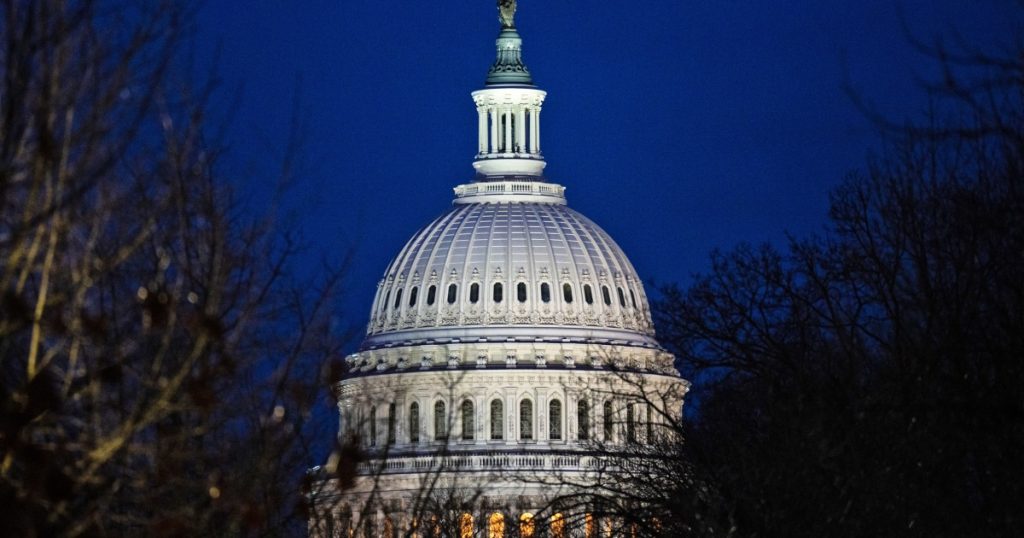The House voted to renew a powerful surveillance program known as Section 702 of the Foreign Intelligence Surveillance Act (FISA) by a vote of 273-147. The legislation was overwhelmingly bipartisan, with 126 Republicans and 147 Democrats voting in favor. Earlier in the week, a group of 19 conservative lawmakers had blocked the bill over demands that were not initially met. After reaching a deal with Speaker Mike Johnson, the legislation moved forward with the reauthorization period shortened to two years instead of five. This change was aimed at giving former President Donald Trump the opportunity to make changes to the law if he were to return to the White House.
As part of the agreement, the conservatives secured a floor vote on an amendment led by Rep. Andy Biggs that would require law enforcement to obtain warrants to search the communications of U.S. citizens and permanent residents collected during surveillance of foreigners overseas. A separate bill by Rep. Warren Davidson that would require warrants for the government to obtain private data of U.S. citizens from brokers will also receive a floor vote. The bill is now set to go to the Senate ahead of the April 19 deadline to renew or sunset FISA Section 702. Some Republicans in the Senate are using procedural moves to try to force another vote on the entire bill.
Hours before the House vote, a rare left-right coalition proposed an amendment to rein in the government’s use of warrantless surveillance of U.S. persons, which ultimately failed in a tie vote of 212-212. Despite support from Progressive Caucus Chair Pramila Jayapal, Rep. Jerry Nadler, and Republicans like Jim Jordan and Warren Davidson, the amendment was ultimately defeated. The White House, represented by Attorney General Merrick Garland and National Security Adviser Jake Sullivan, fought against the amendment, arguing that it would make the U.S. “less safe.” Nadler criticized the bill as inadequate without a warrant requirement, while Jayapal highlighted the need to balance security and civil liberties.
Republicans and Democrats on the committee clashed over the necessity of the legislation, with some arguing that the amendment would prevent the government from identifying and disrupting threats to the American people. Intelligence Committee Chair Mike Turner sided with the White House, warning that requiring a warrant would allow groups like the Communist Party in China, Hezbollah, and Hamas to recruit in the United States freely. However, Democrats like Jim Jordan expressed gratitude for bipartisan efforts to defend fundamental principles. Despite the disagreements, the House ultimately voted to renew the surveillance program, with discussions expected to continue in the future.
The successful passage of the bill comes after a contentious legislative process that included a temporary block by conservative lawmakers and bipartisan support for various amendments. The debate highlighted the complexities of balancing national security needs with civil liberties and privacy concerns. With the bill now moving to the Senate, there may be further discussions and amendments to address the issues raised during the House debate. The agreement to shorten the reauthorization period and allow for additional amendments demonstrates a willingness to work across party lines to address concerns related to warrantless surveillance and the protection of American citizens’ privacy rights.


